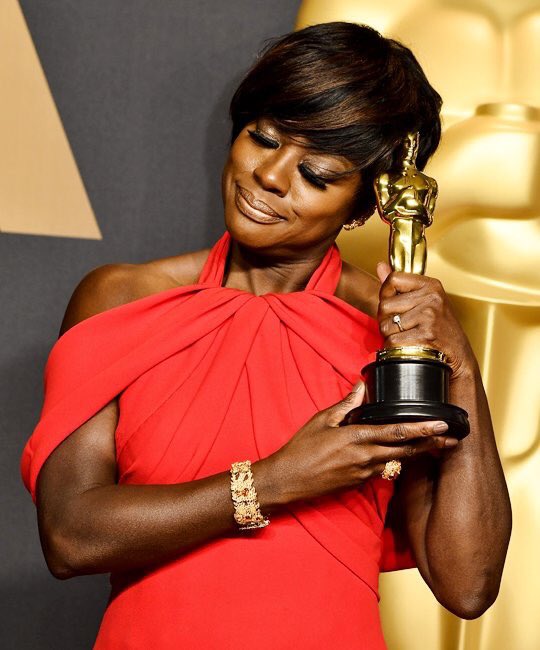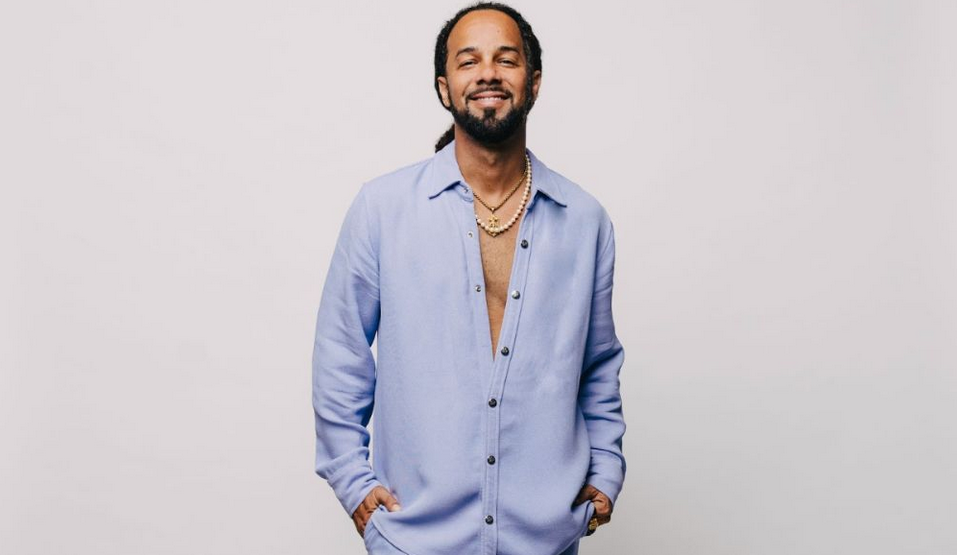Viola Davis. Photo: Twitter
Viola Davis in her 2015 Emmy acceptance speech quoted Harriet Tubman: “In my mind I see a line, and over that line, I see green fields and lovely flowers and beautiful white women with their arms stretched out to me over that line, but I can’t seem to get there no how. I can’t seem to get over that line.”
Acting’s triple crown – Oscar, Emmy and Tony – has been won by only 23 people in history. Now, the first African-American has achieved that feat: Viola Davis.
It seems fitting that Davis’ history-making honor occurred directly at the crossroads of Black History Month and Women’s History Month, for she made history as a Black woman in more than one way: she also is the most-nominated Black actress in Oscar history, with three nominations. In addition to her role in Fences, for which she won, she earned nominations for The Help in 2012 and Doubt in 2009. She was nominated twice for an Emmy, winning in 2015 for her role in How To Get Away With Murder.
She earned three Tony nominations, winning for King Hedley II in 2001 and Fences in 2010. She’s the first Black actress to win five Screen Actors Guild awards. She had also won three Drama Desk Awards, a BAFTA Award, a Golden Globe, and three Critics’ Choice Awards, among others.
When she was honored with a star on the Hollywood Walk of Fame earlier this year, Davis marveled, “I can’t believe my life.” Indeed, her own story is worthy of the Hollywood treatment. She was raised in poverty by a mother who was maid and factory worker. She told the New York Times she stole food from the grocery store and garbage cans and wore the plastic clips from bread bags in her braids.
Davis credits a federal anti-poverty program, Upward Bound, with saving her life. She told Essence magazine, “They kind of picked up where public school left off because I had such enormous needs as a child of abject poverty. Coming from a background where I was first generation going to school, I had enormous challenges that needed to be met that were much deeper than academia.”
Upward Bound, a summer program where high school students take college prep classes and earn work experience at a college campus for six weeks, opened doors that eventually led to the Juilliard School, one of the nation’s leading performing arts programs.
Her success has not shielded her from challenges that she has said result from being “a woman of color, of a certain age, and a certain hue.”
Her 2015 Emmy win established her as a role model when she used her acceptance speech to make a welcome statement about diversity in the entertainment industry: “The only thing that separates women of color from anyone else is opportunity,” she said. “You cannot win an Emmy for roles that are simply not there.”
She was the first Black woman to win the award for Best Lead Actress in a Drama. Only one other black actress has won an acting Emmy: Isabel Sanford, who won for Best Lead Actress in a Comedy in 1981.
Davis’ exemplarity extends beyond her stellar talent and bold outspokenness. She’s a benefactor for the Rhode Island city where she was raised, Central Falls. Her philanthropic projects include the city’s Adams Memorial Library, the Central Falls High School chess team and drama club, and the Segue Institute for Learning, a charter school. She’s also the spokeswoman for the Hunger Is campaign, to eradicate childhood hunger.
We at the National Urban League consider Viola Davis a true woman of power; we congratulate her on her historic achievements and her epic journey and are grateful for her generous spirit and sense of community.
Marc H. Morial
President and CEO
National Urban League








